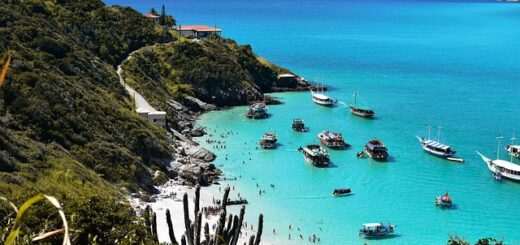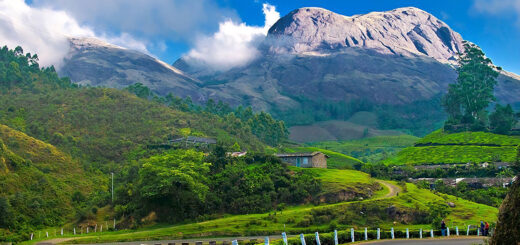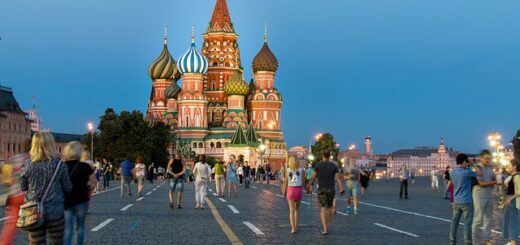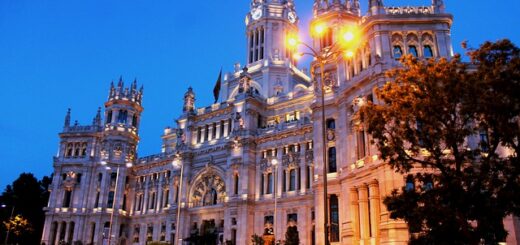Interesting Facts about Cuba You Must Know
Cuba has a rich history, vibrant culture, and unique traditions. There are numerous cuba interesting facts from its beautiful beaches to its famous cigars.
We will explore the interesting facts about Cuba you must know.

Fun facts about Cuba you must know
Here are the Cuba fun facts:
Christmas Ban: One of the interesting things to know about Cuba is for 30 years, from 1969 to 1998, Christmas celebrations were banned in Cuba as part of the government’s promotion of atheism. However, the ban was lifted in 1998, and Christmas is now again celebrated in Cuba.
Highest literacy rates in the world: One of the fun facts of Cuba is education is highly valued in Cuba, and the country boasts an impressive literacy rate of over 99%. The government greatly emphasizes providing free education and prioritizes the importance of learning for all its citizens.
Dominoes is a national Cuban pastime: Cubans have a deep love for dominoes, making it a national pastime that transcends age, gender, and social status. Whether in parks, cafes or even on bustling street corners, you can witness locals engrossed in intense games, their faces filled with passion and excitement. Dominoes serve as a platform for connecting with friends, family, and strangers.
Birthplace of the Mojito: One of the cool facts about Cuba is Mojito, one of the most popular cocktails in the world, originated in Cuba. The Mojito is a refreshing drink enjoyed during warm summer evenings.
Old Havana: One of the must-know facts about Cuba is the historic center of Havana, known as Old Havana, is a UNESCO World Heritage Site. It is a treasure trove of well-preserved colonial architecture, narrow cobblestone streets, and vibrant plazas. Also, check out our travel guide on top things to do in Cuba for more information.
Revolutionary Legacy: Che Guevara, an Argentine Marxist revolutionary, played an essential role in the Cuban Revolution. Guevara’s unwavering commitment to social justice, anti-imperialism, and guerrilla warfare tactics made him an iconic figure of rebellion and revolution worldwide. His image, with his trademark beret and intense gaze, has become a symbol of defiance against oppression and an inspiration for countless individuals fighting for freedom and equality.
Beautiful Beaches: One of the unique facts about Cuba is with its long coastline, Cuba is home to some of the most beautiful beaches in the Caribbean. From the famous Varadero Beach to the secluded coves of Cayo Coco, the crystal-clear waters and soft white sands make Cuba a paradise for beach lovers. Also, check out our travel guide on the best luxury resorts in Cuba all inclusive.
Exciting Facts about Cuba’s Culture
Cuban Music and Dance: One of the most vibrant aspects of Cuban culture is its music and dance. Cuba is known for its lively rhythms, such as salsa, rumba, and mambo. The country has produced famous musicians like Celia Cruz and Buena Vista Social Club. The traditional dance form, salsa, is also deeply rooted in Cuban culture, with dance clubs and social gatherings dedicated to this energetic style.
Santeria Religion: A unique aspect of Cuban culture is the practice of Santeria, which is a blend of African religions and Catholicism. Santeria originated during slavery when enslaved Africans brought their religious beliefs to Cuba. It incorporates elements of Yoruba religion and rituals, with each deity or Orisha representing different aspects of life. Santeria ceremonies often involve music, dance, and animal sacrifices.
Cuban Cuisine: Cuban food is a delicious fusion of Caribbean, Spanish, African, and Native American flavors. Classic dishes include arroz con pollo, ropavieja, and moros y cristianos. The cuisine uses spices like cumin, oregano, and citrus flavors from lime and sour orange.
Vintage Cars: Cuba is famous for its vintage cars. Due to trade restrictions during the Cold War, many Cubans couldn’t import new vehicles, leading to the preservation of classic American cars from the 1950s. These colorful cars can be seen throughout the country and are often used as tourist taxis.
Revolution and Che Guevara: Cuba’s history is closely tied to the Cuban Revolution led by Fidel Castro and Che Guevara in the 1950s. The revolution overthrew the dictatorship of Fulgencio Batista and established a socialist government. Che Guevara, an iconic figure of the revolution, is still celebrated in Cuba, with his image adorning murals and posters across the country.
UNESCO World Heritage Sites: Cuba has nine UNESCO World Heritage Sites, showcasing Cuba’s rich history and architectural heritage. These sites include Old Havana, Trinidad, Viñales Valley, and the Castle of San Pedro de la Roca. Exploring these sites allows visitors to delve into the country’s colonial past and admire its well-preserved buildings and monuments.
Cuban Cigars: One of the exciting facts about Cuba you must know is that Cuba is renowned for its high-quality cigars and some of the best in the world. The country’s tobacco industry dates back centuries, and Cuban cigars are hand-rolled using traditional techniques. The tobacco leaves are grown and harvested in the Vuelta Abajo region, and the production process involves strict quality control to ensure the finest cigars reach the market.
Art and Literature: Cuban culture has a rich artistic tradition, with visual arts, literature, and poetry flourishing on the island. Renowned artists like Wifredo Lam and Amelia Peláez have significantly contributed to the global art scene. Cuban literature, including works by authors like José Martí and Alejo Carpentier, explores themes of identity, history, and social justice. Despite government censorship, Cuban artists continue to express themselves through various mediums, providing insight into the country’s complex cultural and political landscape.
Baseball Passion: Baseball is Cuba’s national sport and is significant in its culture. The island has produced many talented baseball players who have excelled internationally. The Cuban national baseball team has won numerous medals in international competitions, and baseball matches are highly popular among locals.
Must Know Facts about Cuba food
Fusion of Cultural Influences: Cuban food is a fusion of Spanish, African, and Caribbean cooking styles. It is due to the historical influence of these cultures on the island. The Spanish introduced ingredients like garlic, onions, and citrus fruits, while African slaves brought their cooking techniques and spices. Caribbean influences, such as tropical fruits and spices, also shape Cuban dishes.
Staple Ingredients: The main staples in Cuban cuisine include rice, black beans, plantains, and yucca. These ingredients form the base of many traditional dishes and provide a hearty and filling meal. Rice is typically cooked with spices and sometimes mixed with beans to create the famous dish “Moros y Cristianos”.
Tropical Fruits: Cuba’s tropical climate allows for cultivating various fruits used in Cuban recipes. Pineapple, mango, papaya, guava, and coconut are some fruits incorporated into desserts, drinks, and sauces. “Tres Leches” and “Flan de Coco” (coconut flan) are classic Cuban desserts.
Emphasis on Fresh Ingredients: Cuban cuisine strongly emphasizes using fresh and locally sourced ingredients. Vegetables like tomatoes, peppers, onions, and garlic add flavor and color to dishes. Fresh green salads and vegetable sides are also prevalent.
Traditional Cooking Techniques: Traditional Cuban cooking often involves slow-cooking methods, such as braising and stewing. It allows flavors to meld together and meats to become tender. Many dishes are cooked in a “sancocho,” a large pot that steams ingredients over low heat for an extended period.
Traditional Street Food: Cuba is known for its vibrant street food culture, offering various affordable and tasty options. One iconic street food item is the Cuban sandwich. Another popular street food is frituras, deep-fried snacks like croquettes, empanadas, and stuffed plantains.
Unique Desserts and Drinks: Cuban cuisine also boasts a variety of unique desserts and refreshing drinks. One iconic dessert is flan, a creamy caramel custard often served with a drizzle of caramel sauce. Another traditional sweet treat is Arroz con leche. Mojitos, made with rum, mint, lime juice, and soda water, is a famous Cuban cocktail in Cuba and worldwide. Cuba is also known for its strong and aromatic coffee served sweetened or as a café Cubano.
Unique Cuba Historical Facts
Spanish Colony: One of the must-know facts about Cuba is Cuba was a colony of Spain from the 15th century until the Spanish-American War of 1898. During this time, Cuba became one of the most lucrative colonies for Spain, producing sugar, tobacco, and other valuable commodities.
Slavery Abolition: In 1886, slavery was officially abolished in Cuba. It was an essential milestone in the country’s history, as many Afro-Cubans were brought to the island as enslaved people to work on plantations.
Revolution and Fidel Castro: The Cuban Revolution led by Fidel Castro in 1959 deeply impacted the country’s history. Castro’s socialist regime aimed to create a more equitable society and reduce dependence on foreign powers.
Healthcare Achievements: Cuba is known for its achievements in healthcare. The country has developed a robust healthcare system and significantly contributed to medical research and international medical missions.
Cultural Diversity: Cuba has different cultures and influences. From its indigenous Taíno roots to Spanish, African, and French influences, Cuban culture is a unique blend of various traditions.
Final Words
Cuba has a rich and diverse culture. From its unique blend of different peoples to its main agricultural products such as sugar and citrus fruits, tobacco, rice, and beans, Cuba offers a variety of interesting facts to discover.
Whether it’s the country’s historical significance or the delicious Cuban cuisine, there are plenty of must-know facts about Cuba.


















